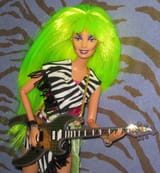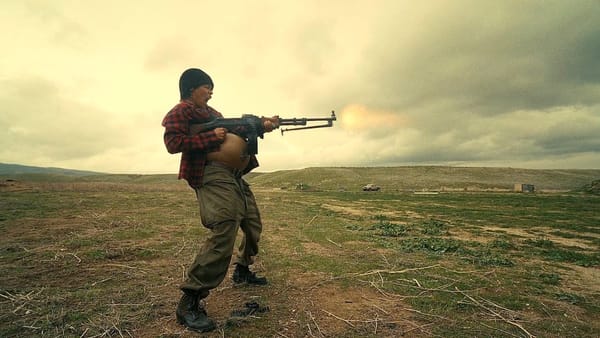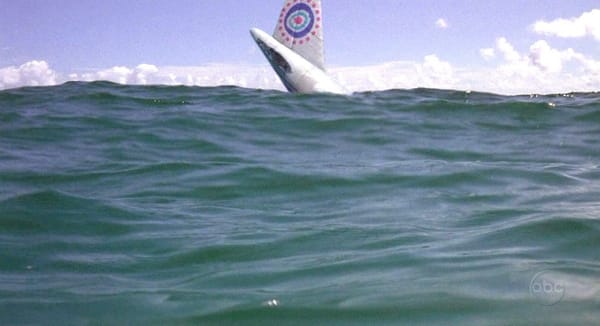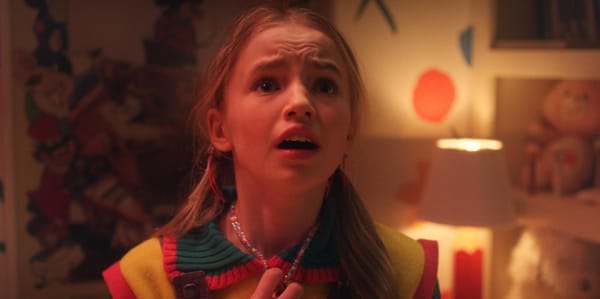The worst thing I ever thought about a fictional character
The '90s were a death sentence
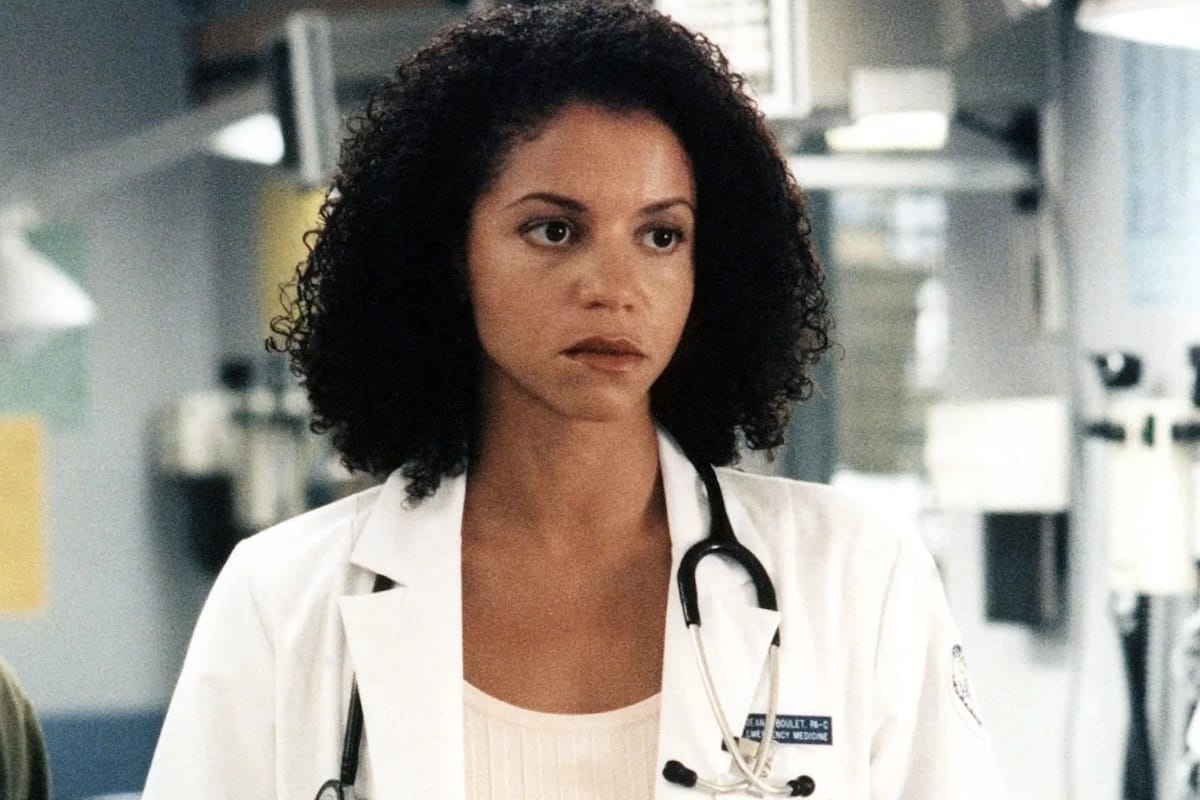
For no particularly good reason (other than that I got the complete series for like fifty bucks a few years ago… that’s 14 cents per episode!), I’ve been re-watching a lot of E.R. lately. For those who weren’t around here at the time — the time in question being the second half of the ’90s — I was kind of, uh, uncomfortably obsessed with E.R. thru its first five or six seasons. Ask anyone I went to film school with — you, reader, think I’m a Star Wars guy? They thought I was a hospital girlie.
I’m towards the end of season three in my rewatch as of this writing, which is the first year (I’d say) that E.R. stopped being able to be an incandescent example of “something new” in prime time television, and had begun to downshift into being the other thing, which is “just television.”
Nothing wrong with that, and if the couple of years’ worth of lament currently circulating among the pop cultural congnoscenti are anything to go by, we really lost something when series started being “we’re going to produce eight episodes at a cost of $200M and then maybe do a second season half a decade from now,” and thereby functionally ceased to be “oh shit, we have to fill how many hours this quarter with watchable programming??”, which is what TV was for most of its lifetime as a medium.
The latter mode is how you get pretty much everything great in television’s prior golden age, stuff like Homicide or The X-Files or LOST or Deep Space Nine. That insane premise of the television production’s work life: you have, like, five days to write something fifty pages long that is going to camera next week and is only episode, uh, nine, of a 25-episode order which must have felt like something you were going to be working on for the rest of your days. And that was only this season.
It’s a punishing way to do anything, and it leads to both conceptual big swings (as you try to fill in the “what are we gonna do this week?” white board) and, more regularly, a lot of templating, rinse-and-repeat, rhythmic storytelling. And so, in season three or thereabouts, everyone on E.R. starts to feel like they’ve relaxed a bit and — with no amount of world-weariness, for it was by that point the biggest show on television — accepted that they were going to have to come up with a sustainable flywheel of that series’ precise admixture of doctor soap opera, high-octane medical conundra, and (once or twice a season or so) an excuse to either send a single cast member on a life-changing side-quest, or blow up the ambulance bay. And pretty dutifully, from what I’ve seen (originally, I tapped out after nine seasons), this is basically the way E.R. continued to run for all of its fifteen years.
Jeez, I’ve got a lot to say about E.R. and how TV used to work, apparently. I haven’t even gotten to the point yet.
The point was this
As I said, E.R. is starting to normalize by season three and, overall, it’s a gentle step down from the wattage of the prior two years in terms of its storytelling. Season three is also, however, the first year of Jeanie Boulet’s HIV arc.
First off, it’s worth highlighting that Gloria Reuben is killing the game this season. She has a huge, meaty storyline to play, as Jeanie discovers she has contracted HIV and works through a lengthy and frustrating process of adapting to that fact, both at work and at home. Throughout, Reuben is giving a master class in how performance, itself, can serve as a storytelling mode.
The writing is terrific, but Reuben is consistently taking the characterization beyond the page in everything Jeanie says and does. Silent looks and quiet reactions to heartbreakingly quotidian dillemae communicate more than whole pages of dialogue. It’s absolutely one of the best performances I’ve ever seen on television.
I recall enjoying it a great deal at the time, too, albeit through a somewhat different lens: I assumed this, Reuben’s second, would also be Reuben’s last year on the show.
This was partly because I was a twenty-year-old film nerd and I thought I knew everything, including why a writing team would give a character HIV in 1995 (prestige drama!) and what that storyline would inevitably mean: a season of watching Jeanie deteriorate, fighting bravely, becoming sicker and sicker while maintaining her dignity, and ultimately succumbing to AIDS by the finale of season three, just in time for those Emmy nomination ballots.
My time with Gregg Araki’s Teen Apocalypse Trilogy last week, freshly on my mind, also reminded me: I was one of those cohorts of high schoolers who learned, and learned hard, that AIDS (and by association, sex itself) was a death sentence.
I have no way of knowing if this corellates in any real way to the anxieties felt by generations of high schoolers who got “sex is a pregnancy sentence” beaten into them in the years prior to mine, but boy. What a time to grow up, learn how your body works, try to sort out what to do with all those yearnings for both sexual contact and, more broadly, intimacy; and, all at the same time, walk the halls with people who still think you can get AIDS from a toilet seat.
I was, on the whole, pretty lucky in my education on the disease and its effects, and even did some of my first advocacy work in that category when I was still in high school. But something which, either out of naïveté or the scare-’em-straight undergirding of public education, or even just my particular iteration of all teenagers’ momentary fascination with their own annihilation, completely slipped my attention was the idea that HIV was survivable.
I mean, I guess I knew that surviving HIV happened; I just didn’t think it happened on television. On television, characters contract diseases that kill them, because watching them suffer, with all the moral subtext therein, is the point.
By about midseason on E.R. season three, Jeanie has met a fellow HIV patient who’s on the triple cocktail, like she is. He’s starting to grapple with the idea that he’s not going to die, like she isn’t. (And never does — Jeanie never dies. Gloria Reuben leaves the show a few years later, like every character does eventually, and for equally unrelated reasons.) Reuben was nominated for two Emmys for playing Jeanie; once for this season, and once for the season following, winning neither.
All these years later, when I think about Jeanie and the HIV arc, I still feel sheepish about my initial response, my boastful “prediction” about what would happen to the character, the tunnel vision of believing that the response to a disease was not to get it, and that if you did get it, you were fucked.
But I’m also continuing to unpack what that moment in time was, in both my relationship to treatment activism, and in living in the shadow of a decade which saw AIDS rip through the queer community before anyone was willing to take it seriously. (Jeanie contracting HIV may have been conceived in part to highlight the fact that, by the mid-nineties, Black women contracting the disease through heterosexual contact was the top category for women with new HIV diagnoses. In terms of broad cultural awareness, this is a step up from the GRID era, but doesn’t feel like a great one.)
When I talk to queer folks who are just a little older than me, the long view of HIV feels altogether more terrifying, and — yes — apocalyptic. I was a baby when all of that death was rolling across the world; I caught the tail end of it, and it still permanently shaped my relationship to my body, my sexuality, my understanding of illness, and a lot of other things besides.
I don’t know where I’m going with this — just to say, the ’90s have been on my mind a lot lately, meaning more or less the rough decade between the invasion of the Persian Gulf and the fall of the twin towers. We have not given the nuance of that time its full measure; or maybe, just, I haven’t, because I was coming of age in the middle of it, and took everything I received as written, without looking deeper at context.
Getting older, maybe, is also beginning to look with fresh eyes at the moment you boarded the train, thinking you were its most important passenger; and realizing after all that the train had in fact been there long before you, and will be there long after.
Great, let’s do links
- A pretty good TIFF wrapup that folds in all the elsewhere shenanigans in this city as our film-related not-for-profits struggle to survive. (Bright Wall/Dark Room)
- Look man, I started the Deathwatch Podcast all those years ago because all of a sudden I really wanted to talk about death; and since stopping, I no longer particularly want to weigh in on famous people dying. But this is a hell of a piece on Kris Kristofferson. (Kaleb Horton)
- Weird confluence: speaking of E.R., here's a Troy Evans (Frank) interview and it's charming as hell! (AV Club)
- This week on YouTube, I’m off in the world of unlicensed collectibles, with ASIS FIlm Models‘ superb Dewy Pamular from Andor (YouTube)
